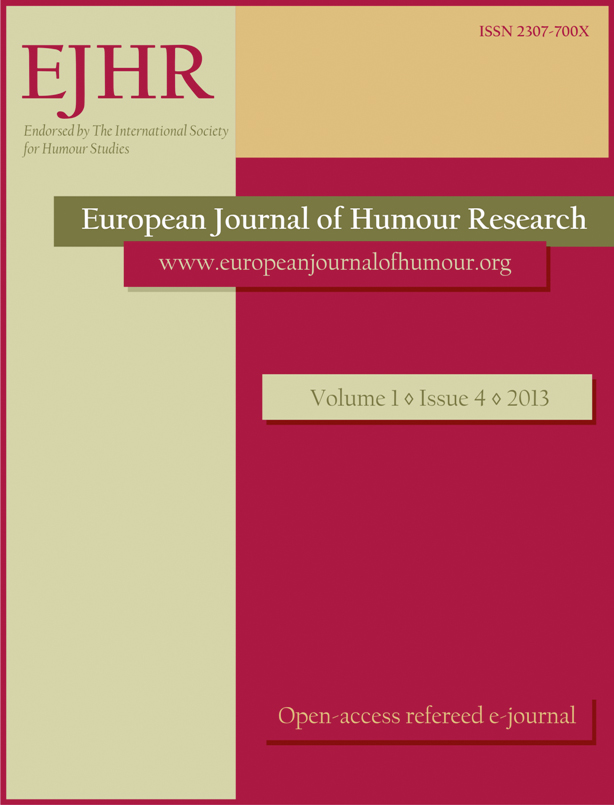Components and determinants of the shift between the own persona and the clown persona:
Components and determinants of the shift between the own persona and the clown persona:
A hierarchical analysis
Author(s): Alberto Dionigi, Willibald Ruch, Tracey PlattSubject(s): Social Sciences, Language and Literature Studies, Psychology, Theoretical Linguistics, Communication studies, Sociology, Pragmatics, Individual Psychology, Social psychology and group interaction, Behaviorism, Identity of Collectives
Published by: Krakowskie Towarzystwo Popularyzowania Wiedzy o Komunikacji Językowej Tertium
Keywords: clown; cognitive shift; training; instrument development; mental preparation;
Summary/Abstract: Working in health settings as a clown requires the ability to differentiate between the own persona and the clown persona and to stay in the role, despite a variety of challenging situations. This passage requires a cognitive shift that can be interfered with, or facilitated, by several variables. This study aims at operationalising the components involved in the shift and relating them to psychological characteristics and other relevant aspects of the training necessary to become a clinic clown. A preliminary 34-item version of the Clown Shift Questionnaire (CSQ) was developed and administered to a sample of 130 Italian clinic clowns. Relevant information such as sociodemographic characteristics, various aspects related to the training received such as length, issues taught, internship carried out, psychological knowledge, and competences in clowning were collected. Four dimensions in the shifting process were identified: reflective awareness, positive beliefs, interference, and anxiety. These dimensions represent a profile of individual differences that may be used to predict the success of the clown intervention. Reflective awareness positively correlates with the aspects related to the training and the years of clown activity, while positive beliefs is a dimension not related to training. Anxiety is higher among females and younger people and correlates negatively with training aspects and years of activity. Interferences are more frequent among those who received higher psychological knowledge and lead to less satisfaction. Further implications for using the concepts of CSQ in research and in the work of clowns in health settings are discussed.
Journal: The European Journal of Humour Research
- Issue Year: 1/2013
- Issue No: 4
- Page Range: 58-80
- Page Count: 23
- Language: English

